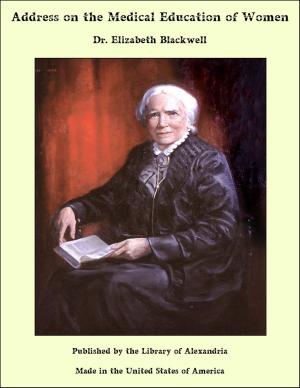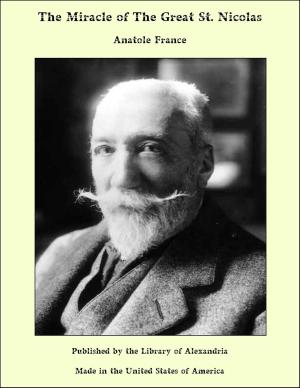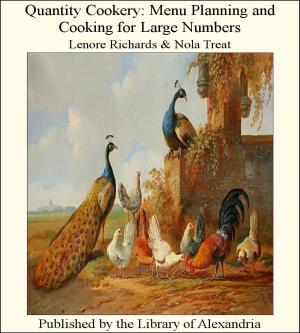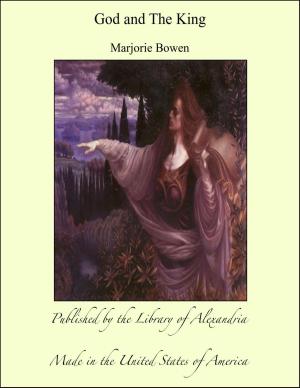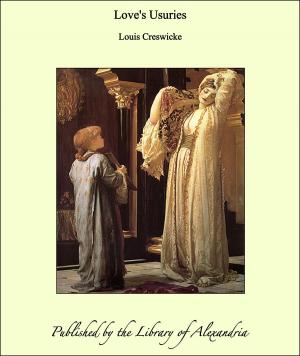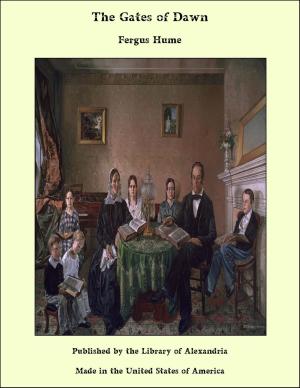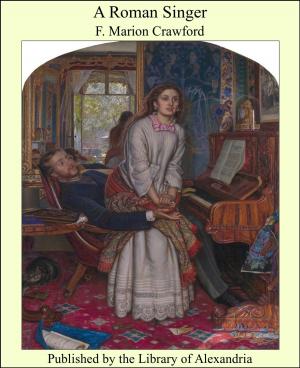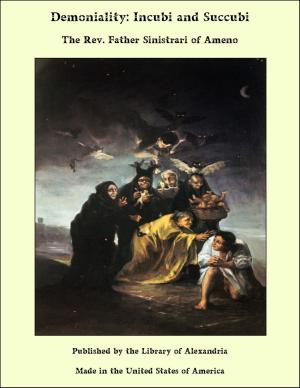She's All the World to Me
Nonfiction, Religion & Spirituality, New Age, History, Fiction & Literature| Author: | Sir Hall Caine | ISBN: | 9781465554529 |
| Publisher: | Library of Alexandria | Publication: | March 8, 2015 |
| Imprint: | Language: | English |
| Author: | Sir Hall Caine |
| ISBN: | 9781465554529 |
| Publisher: | Library of Alexandria |
| Publication: | March 8, 2015 |
| Imprint: | |
| Language: | English |
MYLREA BALLADHOO The season was early summer; the year 1850. The morning had been bright and calm, but a mist had crept up from the sea as the day wore on, and the night, when it came, was close, dark, and dumb. Laden with its salt scent, the dank vapor had enveloped an old house on the "brew" behind the town. It was a curious place—ugly, long, loose, and straggling. One might say it was a featureless and irresolute old fabric. Over the porch was printed, "Prepare to meet thy God." It was called Balladhoo, and, with its lands, it had been for ages the holding of the Mylreas, an ancient Manx family, once rich and consequently revered, now notoriously less wealthy and proportionately more fallible. In this house there was a parlor that faced the bay and looked out towards the old castle and the pier at the mouth of the harbor. Over the mantel-piece was carved "God's Providence is Mine Inheritance." One might add that it was a melancholy old mansion. A gentleman was busy at a table in the bay window sorting and arranging papers by the last glimmering daylight. He was a man of sixty-five, stout, yet flaccid, and slack, and wearing a suit of coarse blue homespun that lay loosely upon him. His white hair hung about a face that bespoke an unusual combination of traits. The eyes and forehead were full of benevolence, but the mouth was alternately strong and weak, harsh and tender, uncertain whether the proper function of its mobile corners was to turn up in laughter or down in disdain. This was Evan Mylrea, member of the House of Keys, Harbor Commissioner, and boat-owner, philanthropist and magistrate, coroner, constable and "local" for the Wesleyan body, and commonly known by his surname coupled with the name of his estate—Mylrea Balladhoo. Mylrea Balladhoo did not belie his face. He was the sort of man who gives his dog one blow for snapping at his hand, and then two more for not coming back to be caressed. Rightly understood, the theory of morals that an act like this implies tells the whole story of Mylrea's life and character, so far as either of these concerns the present history. It was the rule on which this man, now grown old, had lived with the young, reckless, light-hearted, thoughtless, beautiful, and darling wife whom he had brought from England thirty years ago, and buried at home five years afterwards. It was the principle on which he had brought up her only son
MYLREA BALLADHOO The season was early summer; the year 1850. The morning had been bright and calm, but a mist had crept up from the sea as the day wore on, and the night, when it came, was close, dark, and dumb. Laden with its salt scent, the dank vapor had enveloped an old house on the "brew" behind the town. It was a curious place—ugly, long, loose, and straggling. One might say it was a featureless and irresolute old fabric. Over the porch was printed, "Prepare to meet thy God." It was called Balladhoo, and, with its lands, it had been for ages the holding of the Mylreas, an ancient Manx family, once rich and consequently revered, now notoriously less wealthy and proportionately more fallible. In this house there was a parlor that faced the bay and looked out towards the old castle and the pier at the mouth of the harbor. Over the mantel-piece was carved "God's Providence is Mine Inheritance." One might add that it was a melancholy old mansion. A gentleman was busy at a table in the bay window sorting and arranging papers by the last glimmering daylight. He was a man of sixty-five, stout, yet flaccid, and slack, and wearing a suit of coarse blue homespun that lay loosely upon him. His white hair hung about a face that bespoke an unusual combination of traits. The eyes and forehead were full of benevolence, but the mouth was alternately strong and weak, harsh and tender, uncertain whether the proper function of its mobile corners was to turn up in laughter or down in disdain. This was Evan Mylrea, member of the House of Keys, Harbor Commissioner, and boat-owner, philanthropist and magistrate, coroner, constable and "local" for the Wesleyan body, and commonly known by his surname coupled with the name of his estate—Mylrea Balladhoo. Mylrea Balladhoo did not belie his face. He was the sort of man who gives his dog one blow for snapping at his hand, and then two more for not coming back to be caressed. Rightly understood, the theory of morals that an act like this implies tells the whole story of Mylrea's life and character, so far as either of these concerns the present history. It was the rule on which this man, now grown old, had lived with the young, reckless, light-hearted, thoughtless, beautiful, and darling wife whom he had brought from England thirty years ago, and buried at home five years afterwards. It was the principle on which he had brought up her only son

